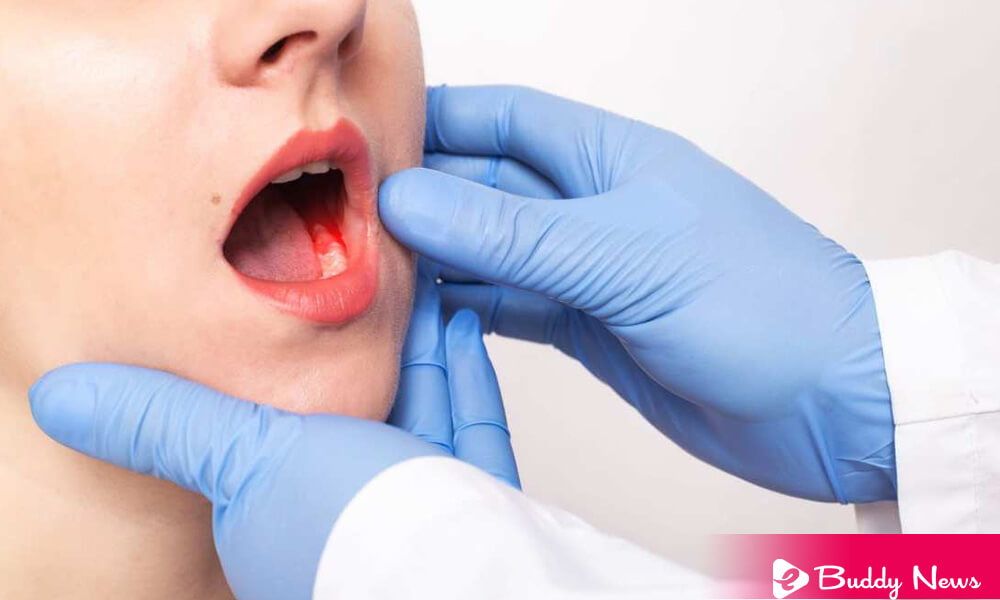What Is The Oral Cancer? Its Symptoms, Stages, And Treatment

Oral cancer or mouth cancer mainly affects people over age 50 and is more common in men. Doctors usually treat Oral cancer with surgery, radiation therapy, or chemotherapy. We explain below how oral cancer causes, stages and its treatment.
What Is Oral Cancer?
Uncontrolled cell growth in the mouth caused Oral cancer. Oral cancer encompasses cancer that begins anywhere in the mouth, including:
- lips
- tongue
- gums
- the floor of the mouth or under the tongue
- inside of cheeks and lips
- the roof of the mouth (the palate)
- the area behind wisdom teeth
Types Of Oral Cancer
Nine out of ten oral cancers are squamous cell carcinomas. They develop in the flat cells, same as those of the skin, which line the inside of the mouth.
Other less often types of mouth cancer include:
Salivary Gland Cancer
It begins in the cells of the salivary glands.
Lymphoma
It starts in lymphatic tissue near the base of the tongue and tonsils.
Melanoma
It begins in the cells responsible for pigmentation of the skin around the mouth or on the lips.
Symptoms Of Oral Cancer
Most people with oral cancer have no early symptoms at all, but others may have:
- a mouth or lip ulcer that won’t heal
- constant pain or discomfort
- red or white spots in your mouth
- a lump on your lip, tongue, or neck
- bad breath
- unexplained bleeding from the mouth
- numbness in the mouth
- loose teeth
Sometimes these symptoms are not caused by oral cancer but see your GP or dentist if you have them.
Causes Of Oral Cancer
Doctors do not fully understand why oral cancer develops. However, certain factors such as tobacco or alcohol make mouth cancer more likely:
- They smoke any tobacco like cigarettes, cigars, pipes, and bidis or hand-rolled cigarettes containing cannabis.
- People who chew tobacco, such as betel quid, gutkha, and paan.
- If they excessive alcohol use, especially while smoking or chewing tobacco.
- Exposure to sunlight or ultraviolet light increases the risk of developing lip cancer.
- A weakened immune system; People who have HIV / AIDS or take medications that suppress the immune system are more likely to develop oral cancer.
Oral Cancer Diagnosis
The earlier diagnosed oral cancer, the better the chances of recovery. Suppose you visit a hospital so that your dentist can detect oral cancer in its early stages during a routine checkup. So it is important to see your dentist regularly.
Your doctor or dentist will ask about your symptoms and examine you with a small mirror to see the most difficult areas. They will feel your neck and face for swelling. Then it can refer you to an ear, nose, or throat specialist for other tests.
You may have the following tests to show the diagnosis:
- They suggest an X-ray of the upper and lower jaw (Panorex), chest, or both.
- Barium test: This test involves drinking a drink that contains barium (a substance that shows up on X-rays). X-rays will show any strange lumps in the throat.
- Imaging tests: they suggest this, which may include ultrasound, MRI, or CT scan. These procedures check the muscles, organs, and tissues of the face, throat, and chest.
- The doctor initiated More biopsies of nearby lymph nodes. Those lymph nodes are glands in the body that are part of the immune system.
Stages Of Oral Cancer
If the test confirms that you have cancer, you will have additional tests to determine how much it has spread and help decide the type of treatment you will need. The stage of cancer calls to determining.
TNM is the most widely used system from the American Joint Committee on Cancer, which evaluates the stage of oral cancer according to:
- the extent or size of the tumor
- spread to adjacent nodes
- metastasis (involvement of other organs of the body).
The stages of oral cancer go from I to IV, being more serious, the greater the number, you must have to get treatment before it causes danger.
Oral Cancer Treatment
Treatment depends on the types and stages of oral cancer, where lodged it, and how much it has spread. Your doctor will explain what your treatment options are.
There are four main treatments for oral cancer:
Surgery
The surgery (including the use of laser) is only removing the affected tissue. The surgery required will depend on the amount of tissue affected. Sometimes, followed surgery by chemotherapy or radiation therapy to ensure to destroy that all cancer cells.
Non-surgical Treatments
- Radiation therapy – to kill cancer cells, they use radiation.
- Chemotherapy: consists of giving anti-cancer drugs to destroy cancer cells. They are injected through a vein usually, but they can give tablets sometimes.
- Biological therapy: Specialists use Specially made monoclonal antibodies (cetuximab) to block areas on the surface of cancer cells that can cause growth. They are using Radiation therapy to kill cancer cells. Cetuximab is a new treatment approved for use only in advanced squamous cell cancer of the head and neck.
Oral Cancer Prevention
Changing a Simple lifestyle can lower your risk of mouth cancer:
- Visit your dentist for regular checkups.
- If you notice any changes in the mouth, such as sores or ulcers that do not heal, tell your GP.
- No smoke.
- Don’t chew tobacco.
- Drink only in moderation.
- Eat a healthy diet with a minimum of five servings of fruits and vegetables a day.
- Have to protect your skin from exposure to sunlight and other ultraviolet rays, such as tanning beds.














